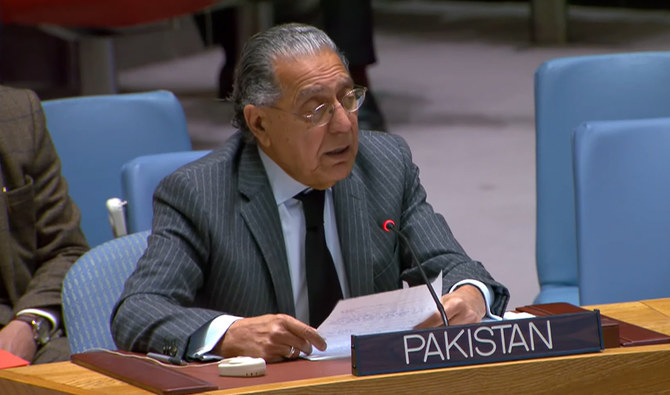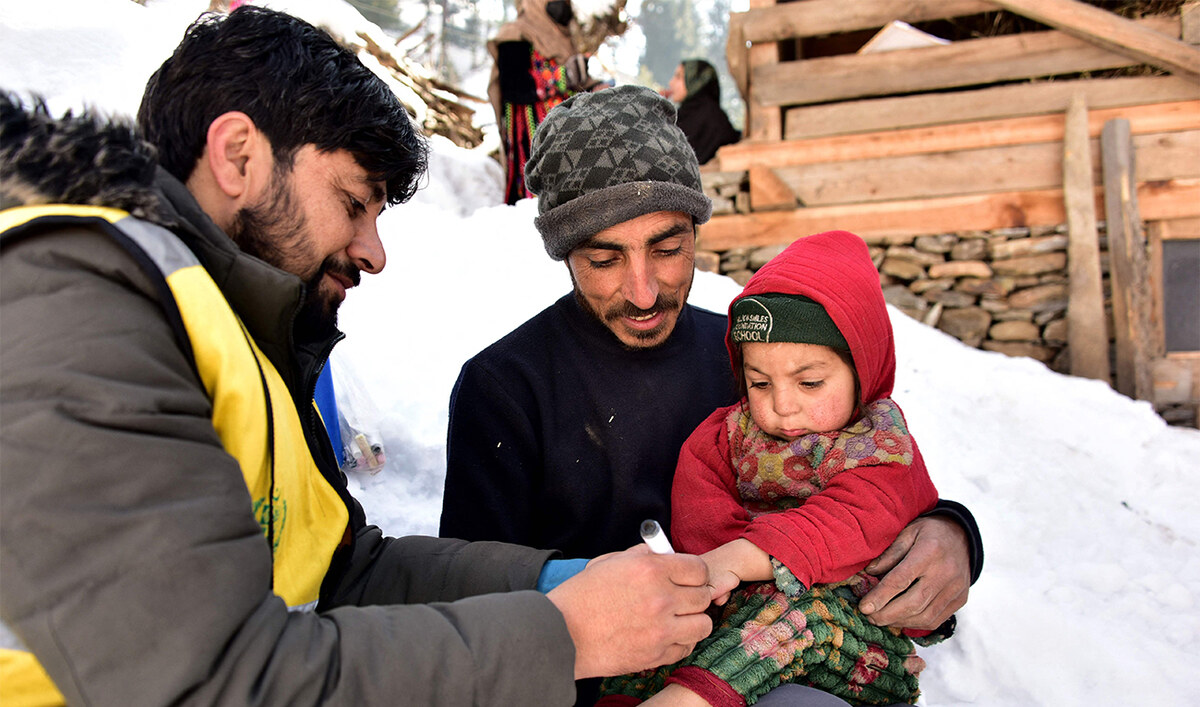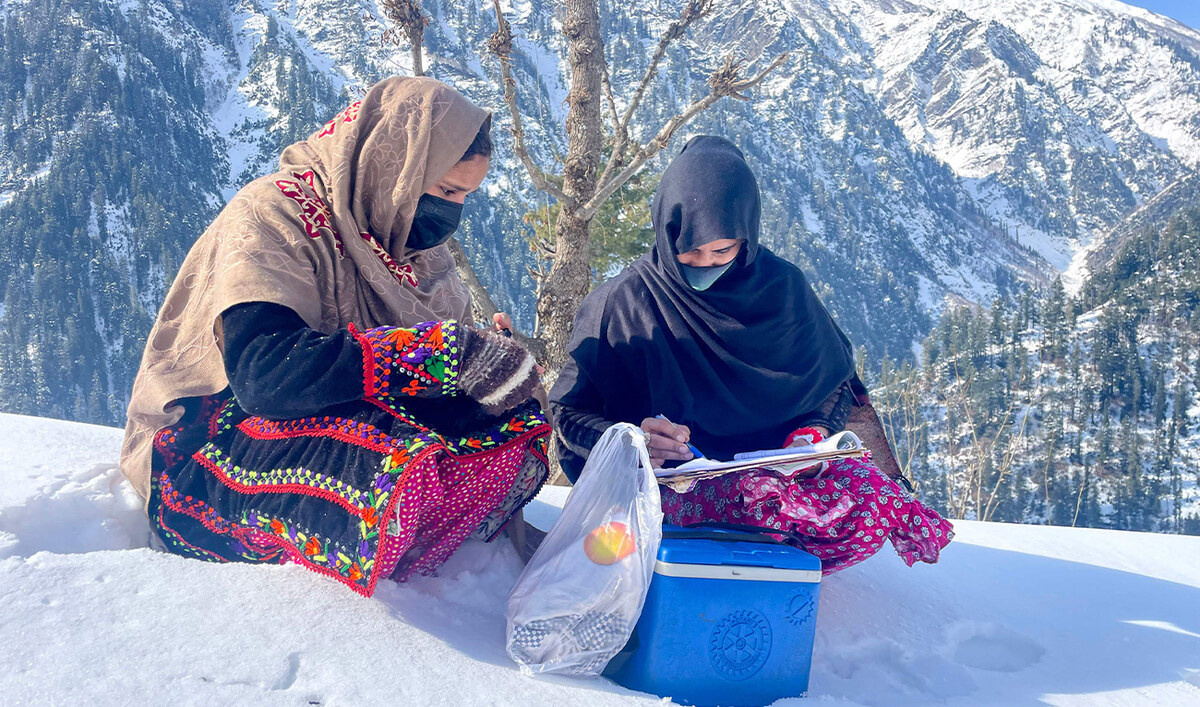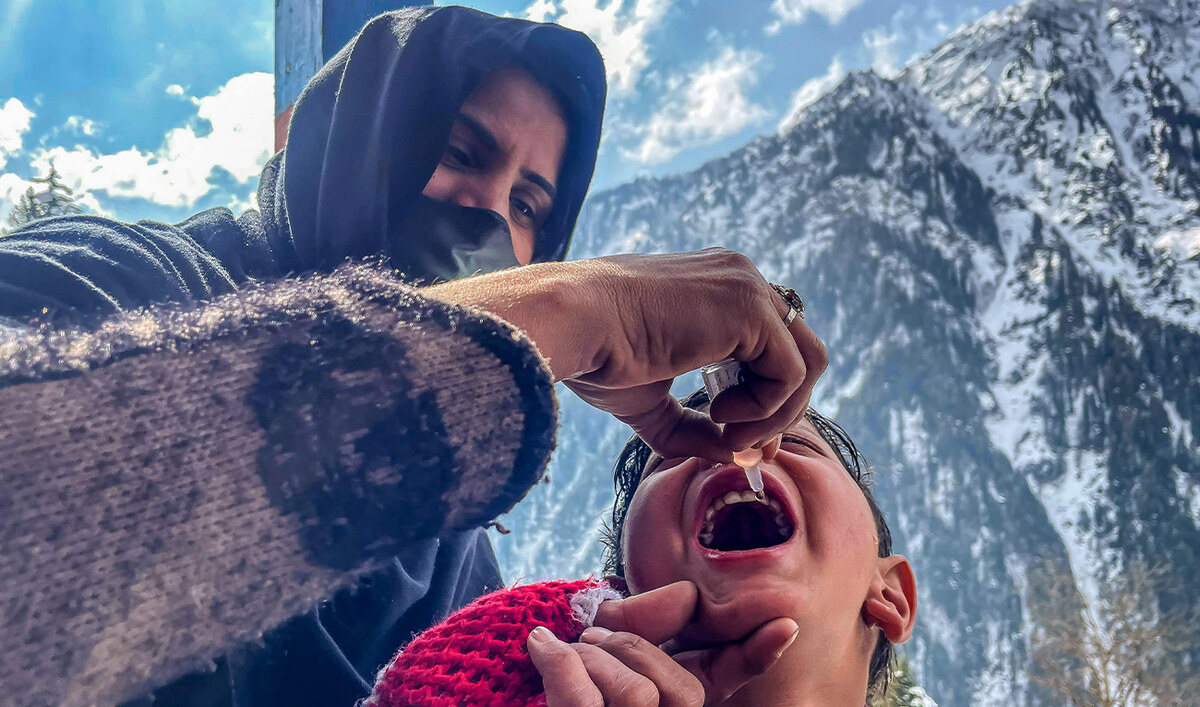ISLAMABAD: Ambassador Munir Akram, Islamabad’s permanent representative to the United Nations, has called for a UN probe into how the Tehreek-e-Taliban Pakistan (TTP), which has carried out some of the deadliest militant attacks in the South Asian country in recent months, has acquired advanced weapons.
Pakistani top officials, including caretaker Prime Minister Anwaar-ul-Haq Kakar, have said US military equipment left behind during the American withdrawal from Afghanistan has made its way to the TTP, or Pakistani Taliban.
The TTP has over the past months intensified attacks on Pakistan’s security forces. It is a separate group but allied with the Afghan Taliban.
Speaking at the UNSC’s United Nations Assistance Mission in Afghanistan (UNAMA) briefing on Wednesday, Akram said the TTP and its affiliates had carried out a series of organized cross-border attacks on Pakistan in recent weeks and had access to weapons that had originated from the stock left behind by US-led foreign forces in Afghanistan.
“The question is: how did the TTP, a listed terrorist organization, secure these weapons?” the diplomat said, calling on the UNAMA or another UN agency to conduct a “thorough investigation” to elicit how these weapons got into the hands of the TTP and to identify ways of retrieving them.
In a media interaction in September, PM Kakar had said US equipment — which includes a wide variety of items, from night vision goggles to firearms — was “emerging as a new challenge” for Islamabad as it has enhanced the fighting capabilities of the Pakistani Taliban.
The Taliban overran Afghanistan in mid-August 2021 as US and NATO troops were in the last weeks of their chaotic pullout from the country after 20 years of war. In the face of the Taliban sweep, the US-backed and trained Afghan military crumbled.
There is no definite information on how much US equipment was left behind but the Afghan Taliban seized US-supplied firepower, recovering guns, ammunition, helicopters and other modern military equipment from Afghan forces who surrendered it. Though no one knows the exact value, US defense officials have confirmed it is significant.
In a press briefing this week, United National Security Council Coordinator for Strategic Communication John Kirby said “this is a fallacy, a farce” when questioned about TTP using US weapons.
“We didn’t just leave a bunch of weapons in Afghanistan,” he said, adding that any equipment left behind was with Afghan forces.
Pakistan has also protested to the Afghan government over a number of recent attacks including one in which 23 soldiers were killed in an assault on a military base last week, demanding action against the perpetrators as Islamabad grapples with security challenges ahead of elections on Feb. 8.
Ties between Islamabad and Kabul have plunged in recent months to their lowest in years.
In October, Pakistan ordered the expulsion of all Afghan nationals staying in the country without legal documents, holding them responsible for 14 of this year’s 24 suicide bombings.
Pakistan says militants, particularly from the TTP, use safe havens in Afghanistan to train for and carry out attacks such as the one last week. Kabul denies the charge, saying Pakistan’s security challenges are a domestic issue.
“A number of terrorist groups are living in Afghanistan, evidently under the protection of the Afghan Interim Government,” Ambassador Akram told the UN briefing.



















